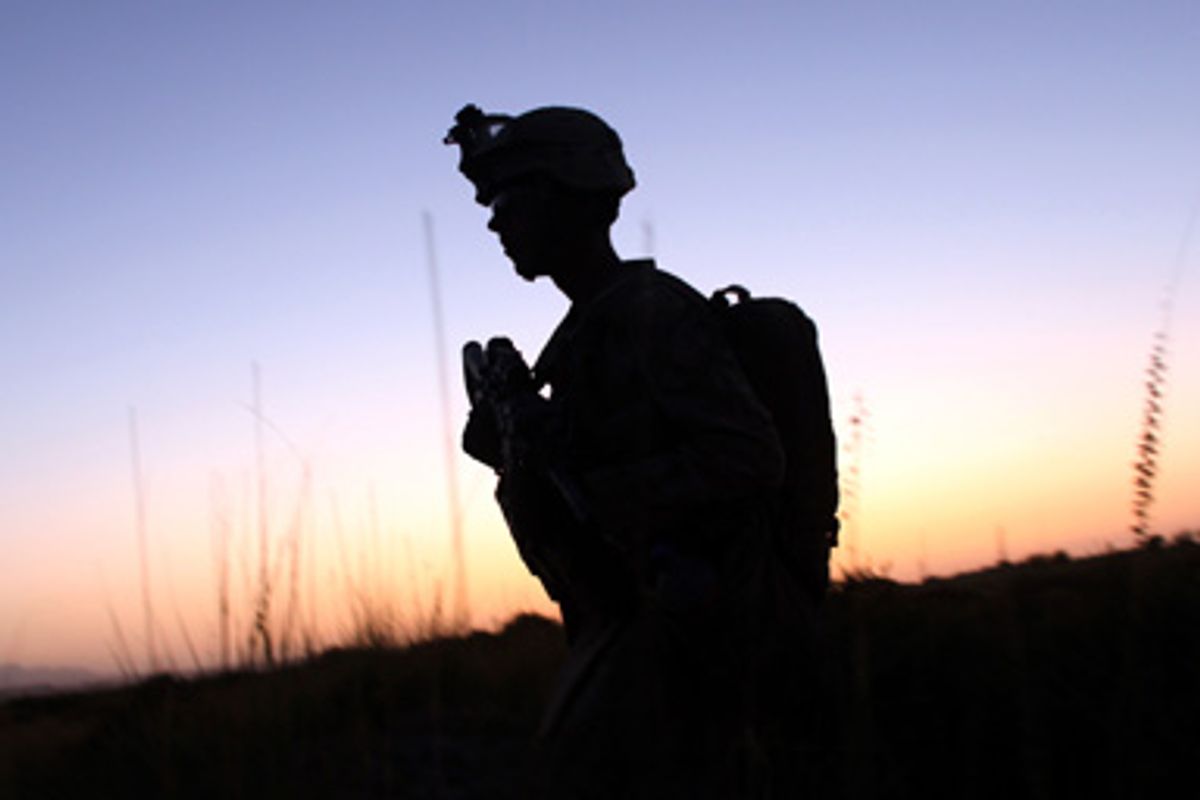Richard Haass, the president of the influential Council on Foreign Relations, talks about new approaches to the Afghanistan war, the country's decreasing significance in the war on terror and why Pakistan is more important to American interests.
A memo written by the U.S. commander in Afghanistan, Stanley McChrystal, was recently leaked in which he asks the American people for more patience and President Barack Obama for more troops. Isn't it rather unusual for U.S. generals to put so much pressure on the president?
It is fine for generals and civilians to ask for more resources. One of their responsibilities is to speak truth to power if they think they need more resources to accomplish the mission. To do that in public is not appropriate, though. The president deserves to have these issues debated in private. Whoever leaked Gen. McChrystal's memorandum acted unfairly and unprofessionally.
But should Obama follow this advice?
It would be premature to follow it at the moment. First, we need to be more confident that doing more militarily in Afghanistan will produce more results. It is not clear that will be the case. Secondly, we need to challenge the assumption that what happens in Afghanistan is critical for the global effort against terrorism.
Isn't that effort doomed if Afghanistan remains a safe haven for terrorists? That is why the West invaded the country, after all.
That is not clear either. Even if terrorists were to be denied Afghanistan, they could operate out of other countries. We should also reconsider whether what happens in Afghanistan is essential for the future in Pakistan, which, frankly, matters more to the United States. Pakistan's internal dynamics will count for more when it comes to determining Pakistan's trajectory. I believe the president is right to slow down the decision process.
Obama already announced a new Afghanistan strategy in March, which appeared to include more U.S. troops. Now there are calls for that to be reconsidered. What has changed since then?
Today, things are looking even bleaker in Afghanistan. It is not at all obvious that Afghans can overcome ethnic and tribal loyalties, corruption and personal rivalries. The presidential election in August was deeply flawed. No matter who is ultimately declared the winner, this election is almost certain to leave the country even more divided.
Some administration officials have suggested that the U.S. should step up its military operations against terrorists in Pakistan, rather than sending more troops to Afghanistan.
I am sympathetic to the idea. Pakistan is more vital to the U.S. and we are starting to see progress there. There should be a greater level of economic and military support in Pakistan. Carrying out more airstrikes there is an attractive idea as long as the chance of collateral damage is minimized.
President Obama often calls the war in Afghanistan a "war of necessity." It's a term he lifted from one of your books…
Please, you are getting me into trouble.
But you no longer call it a war of necessity. Why?
It was a war of necessity after the attacks of 9/11 when you had a hostile government led by Taliban in Afghanistan. Now you have an essentially friendly government in Kabul and al-Qaida has reestablished itself in Pakistan. So I am no longer sure what happens in Afghanistan is still essential to the war on terrorism. Afghanistan is thus a war of choice -- Mr. Obama's war of choice. There needs to be a limit to what the United States does in Afghanistan and how long it is prepared to do it.
What options does the president have?
We have alternatives to an even bigger troop increase. That is another reason why this is no longer a war of necessity. The choice is not between pulling out and increasing resources. We can reduce our troops' ground-combat operations but emphasize drone attacks on terrorists, the training of Afghan soldiers and police officers, and development aid and diplomacy to fracture the Taliban. Nobody is talking about or should be talking about abandoning Afghanistan.
But we are talking about fewer U.S. troops.
The risk of ending our military effort in Afghanistan is that Kabul could be overrun and the government might fall. The risk of the current approach -- or one that involves dispatching 10,000 or 20,000 soldiers more -- is that it might produce the same result in the end, but at a much higher human, military and economic cost. But if the U.S. does decide to increase troop levels, it should condition any such decision on specific Afghan commitments and reforms.
This article has been provided by Der Spiegel through a special arrangement with Salon. For more from Europe's most-read newsmagazine, visit Spiegel Online or subscribe to the daily newsletter.



Shares